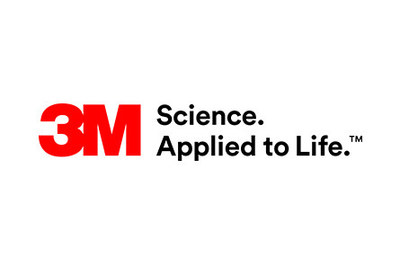
Canada needs to create more inclusive tech workforce
EP&T Magazine
Electronics Engineering inclusive STEM tech workers3M unites leading Canadian STEM advocates to act
New research from the annual 3M State of Science Index reveals whether it’s finding the way out of the pandemic, or successfully tackling other issues such as sustainability and climate change, 93% of Canadians recognize scientists as being critical to our future well-being in light of the pandemic. At the same time, 68 per cent of Canadians acknowledge underrepresented minority groups often don’t receive access to STEM education, which is critical not only because a more diverse STEM workforce will result in more innovative ideas, but also to enable Canada to increase its global collaboration to help solve some of our biggest problems.
At the recent 3M STEMtalk, Canadian STEM advocates gathered to take action and bring forward solutions to the barriers to STEM education for underrepresented communities and have three recommendations for Canada. Those recommendations are:
- Change the way STEM is taught and accessed in Canada
- Move from role models to champions
- Share the responsibility to match words and actions

Source: Getty Images
“Diverse experiences and perspectives working together leads to more effective solutions,” said Penny Wise, President of 3M Canada. “The 3M State of Science Index results underpin the need to unite educators, government, corporations and families, to ensure underrepresented students have equal access to STEM education. 3M STEMtalk is one way we can help create greater opportunities, by being advocates for change and lifting the strong Canadian voices who can help make a difference. We’re humbled and invigorated to have started this great work alongside some of Canada’s foremost advocates for STEM to deliver these recommendations. And this is just the beginning. Through partnering and sponsoring those who are making a difference, 3M will invest in lifting those voices for years to come.”
STEM education has focused on western philosophies and perspectives
“We need to recognize different frames of reference for creating teaching materials and design a system that supports and resonates with diverse world views,” said Doug Dokis, Actua’s Director, National Indigenous Youth in STEM Program. “For decades, STEM education has focused on western philosophies and perspectives. It’s time to rethink how we teach STEM to support all ways of thinking. For example, Actua’s National Indigenous Youth in STEM (InSTEM) program is grounded in Indigenous knowledge and Indigenous approaches to education and community engagement. This program, and others like it, empowers youth with a sense of belonging in STEM and the critical skills and confidence needed to achieve their full potential.”
“People at a young age, need to be able to see themselves reflected in the science community and have the champions in their life who support those goals. To do this we need to lead youth to show them the path to a career in STEM, that it is possible, that there are opportunities for people just like them and that there are supportive programs, educators and champions along the way who will help lift them to an endless array of possibilities,” said Vanessa Raquel Raponi, Founder of EngiQueers and Product Development Engineer.
Key findings from 2021 3M State of Science Index:
- Eighty-seven per cent of Canadians agree it’s important to increase diversity and inclusion in STEM jobs. Why?
- Fifty per cent believe more diversity equals greater global collaboration followed closely by 47% feel diversity and inclusion will result in more innovative ideas.
- Sixty-eight per cent of Canadians acknowledge underrepresented minority groups often don’t receive access to STEM education.
- Most Canadians (89%) believe that science gives hope for the future and 85% are hopeful that 2021 will be a better year than 2020 because of science.
- Students would be more inspired to pursue STEM if they had a better understanding of the different career opportunities in science, and as a science company.
- Ninety-three per cent of Canadians recognize scientists as being critical to our future well-being in light of the pandemic.
- Forty-four per cent of Canadians are more inspired to pursue a STEM career due to the pandemic.
- Nearly two-thirds (63%) of Canadians report that the COVID-19 pandemic has made them more environmentally conscious.
- Equally, across all generations, 90% of Canadians believe people should follow the science to help make the world more sustainable.
The 2021 3M State of Science Index
- Canadian findings: https://sciencecentre.3mcanada.ca/3m-state-of-science-index
- Full global data: https://www.3m.com/3M/en_US/state-of-science-index-survey/interactive-3m-state-of-science-survey/
Survey Methodology 3M’s State of Science Index presents original, independent, and nationally representative (based on census demographics) research in 2021, conducted by an independent global research partner through a combination of online and offline interviews. The 2021 Survey was conducted February 2-March 23, 2021 in 17 countries among 1,000 general population adults (18+) in each of the following countries: Australia, Brazil, Canada, Colombia, China, France, Germany, India, Italy, Japan, Mexico, Poland, Singapore, South Korea, UAE, UK and the U.S. At the 95% confidence level, the margin of error is +/- 0.8 percentage points at the global, 17-country level and +/- 3.1 percentage points for each individual country. To compare across all waves of SOSI, a 10-country tracking average was used which has a margin of error of +/- 1.0 percentage points. Countries within this average include Brazil, Canada, China, Germany, Japan, Mexico, Poland, Singapore, UK, and the U.S.

3M Logo (CNW Group/3M Canada Company)
